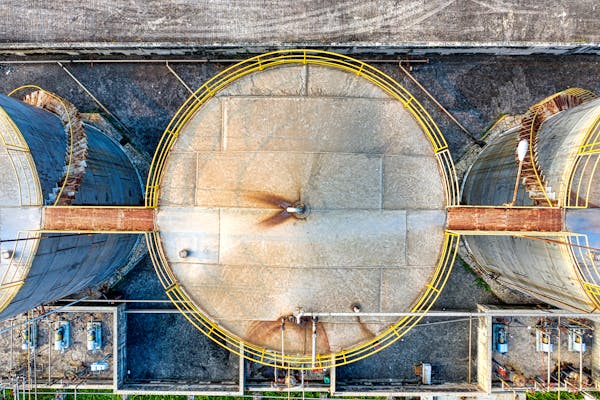With the proliferation of e-commerce and a growing need to store sensitive items, climate-controlled storage facilities have become a lucrative business opportunity. These specialized units offer protection from extreme temperatures, humidity, and other environmental factors that can damage valuable goods. As the market for these services expands, understanding how to successfully open and operate a climate-controlled storage facility is critical. Below, we map out the essential steps to launch a thriving storage business in today’s market.
Understanding the Demand for Climate-Controlled Storage Facilities

The surge in smaller living spaces and the growing importance placed on personal possessions have fueled a notable demand for climate-controlled storage facilities. These facilities cater to individuals seeking to safeguard items sensitive to temperature and humidity fluctuations, such as electronics, antiques, and vital documents. Businesses also benefit from such units for inventory, documents, and equipment storage.
To gauge the potential viability of such a venture, conducting a self storage feasibility study is crucial. This study helps in understanding the specific needs of the target market, local climate considerations, and community preferences. By engaging with local communities and businesses, valuable insights can be gained to tailor services that meet and surpass expectations.
Planning Your Climate-Controlled Storage Facility: Location and Building Requirements
Selecting the ideal location is paramount for the success of your storage business. It should offer easy access, safety, and visibility, with potential for expansion as your business grows. Proximity to commercial or residential areas influences client demographics and marketing strategies.
Constructing a climate-controlled facility demands specific materials and insulation to maintain consistent internal temperature and humidity levels, ensuring the protection of stored belongings from external conditions.
Efficient and reliable climate control systems are essential for managing operational costs and customer satisfaction. Features like proper ventilation, dehumidifiers, and backup power systems require careful consideration during design.
Flexibility in design is crucial for accommodating future technological advancements and changing storage needs, enabling seamless upgrades to remain competitive in the industry.
Navigating Legal Considerations and Obtaining Necessary Permits
Establishing a climate-controlled storage facility requires careful attention to legal considerations. Compliance with zoning laws, building codes, and safety regulations is essential to avoid potential legal issues that could disrupt operations.
Obtaining the necessary permits can be complex, so it’s advisable to collaborate with local authorities, legal experts, and industry consultants. Their expertise can streamline the process, from securing construction permits to obtaining operational licenses.
Insurance coverage is crucial for protecting the business and customers’ belongings. Adequate insurance safeguards against potential risks, providing both financial security and peace of mind. Prioritizing customer data protection is vital. Compliance with data protection laws is not only ethical but also a legal obligation. Implementing robust security measures enhances trust and reinforces your facility’s reliability and safety.
Implementing Cutting-Edge Climate Control Technologies

Staying abreast of advancements in climate control technology is crucial for staying competitive in the storage industry. Investing in cutting-edge systems not only ensures optimal environmental conditions but also showcases a commitment to quality and modernization, qualities highly valued by clients.
The integration of smart technologies enables real-time monitoring and adjustments of climate settings, offering both convenience and control for customers while supporting energy management and sustainability efforts.
Maintenance is key, requiring a routine checkup plan and collaboration with reliable service providers like those specializing in air conditioning repair Merritt Island FL to anticipate and address any potential disruptions.
By embracing emerging trends such as renewable energy sources and automation, storage facilities can position themselves as leaders in the field, appealing to environmentally conscious clientele and preparing for future scalability.
Marketing Your Climate-Controlled Storage Facility to Maximize Visibility and Occupancy
A robust marketing strategy is essential for standing out in the competitive storage market. Highlighting unique features like advanced climate control and top-notch security can set your facility apart and demonstrate its value to potential customers.
Utilizing digital marketing channels is cost-effective and efficient for reaching a wide audience. A user-friendly website optimized for search engines, active social media engagement, and encouraging online reviews can enhance brand visibility and attract clients.
Traditional marketing methods shouldn’t be overlooked. Local advertisements, community involvement, and participation in events can foster connections and boost local awareness. Integrating these with digital strategies creates a well-rounded campaign.
Staying informed about market trends allows for agile adjustments to marketing approaches, ensuring relevance and effectiveness in reaching target audiences. Adaptability is key to thriving in a dynamic business landscape.
Overall, launching a climate-controlled storage facility demands meticulous planning, market awareness, legal compliance, technological investment, and strategic marketing. With careful execution at every stage, your facility can attain operational excellence and financial prosperity.















